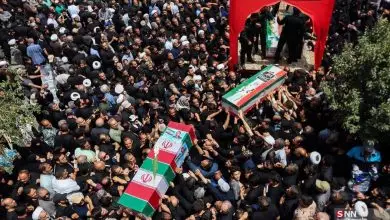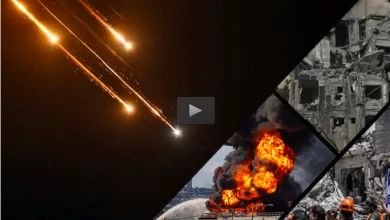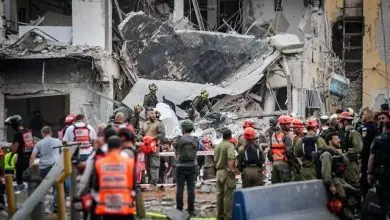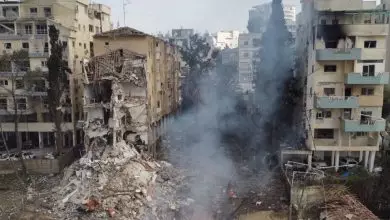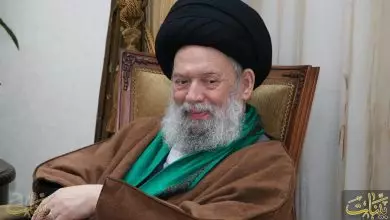Syria to save ties with Turkish nation; Erdoğan govt. ‘transitory’
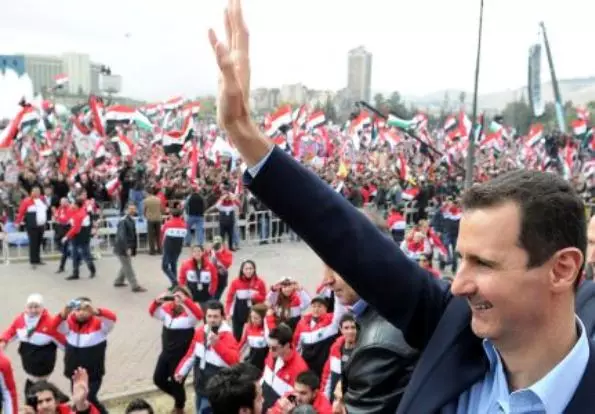
| Syrian President Bashar al-Assad has said that his government knows that Turkey played role in killing of Syrian people. He blames this on ‘some individuals’ in Turkish present government, after whom Syrian-Turkish relations would improve. | |
| According to Mehr News Agency, Syrian President Bashar al-Assad presented his opinions on Syrian crisis and the future developments.In an interview to Persian service of Iranian Nasim News Agency, Assad said that “tension in some parts of a country would not be a good criterion for assessing situation in whole country,” he said.
“When citizens see the crisis in their own city, they would think that the whole country is in crisis. This is true for peace situation as well. This must not be considered a good criterion. After any military operation, peace may or may not come, or even it may be gone by interventions by armed opposition fighters. So, I think, unrest in a region cannot be generalized to whole country,” he added, and that “I believe that the war is war between wills.”
Syrian President also asserted that opposition had launched all its attempts to overthrow the government and the country, and added that “they started the war in Daraa, then went to Homs and Damascus, and then went to Aleppo; they have been in constant changing their trenches. They are testing cities and different regions’ weight and importance on situation in whole Syria.” “Technologically, tactically, and strategically, the clashes are much complex now,” said Assad, “however; our armed forces have gained many wins in clashes.” “Some expect the war to end after hours or days and weeks, but this is unrealistic thinking, since Syria fights a war against regional and international forces, and we need an opportunity to respond to this raid.” “In summary, I can say that we are progressing, we are practically in better position, but we need much time to attain a definite outcome.” * Erdoğan’s government transitory; our ties with Turkish nation solid To a question on Syrian government policies on financial, political and weaponry supports by some countries for Syrian opposition fighters, and terrorist groups coming and going to these countries, Assad said that “ some neighboring countries standing with us may not protect their borders with Syria to cut flow of weapons and fighters to Syria. Some ignore what happens in their borders, and some others directly intervene.” “We should distinguish between the countries and their nations. The question is what should be our position toward their nations or governments. Should we tolerate and keep ties or resort to taking revenge? For example, Turkish government position on Syria is clear. Turkey has directly intervened in killing Syrian people. When we took a policy of mutual relations, we did not see it in terms of individual statesmen. Individuals come and go.” “We see our 9 decades of crisis-prone relations with Turkey and, determined to continue current stability, will not return our policies to the past for ignorance of some politicians in Turkey.”
“Syria highly evaluates relations with Turkish nation. They have expressed their support for us since the outbreak of crisis, and have not swerved from their direct path under the impact of media propaganda, and costly campaigns.” “We must think for nations, since governments are transitory. So, we should not react before enough thinking, since nations would be our supporters, and any government lacking popular legitimacy, would remain weak.” * Nations of anti-Syrian countries will soon be against their countries Assad responded the question “ why would these nations rally against their governments, since their governments’ conduct in Syria are inflicting costs upon them,” as “ this is true, but time will reveal that. We should not forget that some of these nations are in fight with their governments, and they need time for getting into a definite result. Win and loss are on stake. We should expand ties with nations, and help them find the facts. When nations knew realities in Syria, and positions by their governments at home, they would act politically strongly, and such governments would live short. We can be patient for such short governments to end.” * Syrian army controls everywhere in Syria; no single region out of control Syrian president answered the question “why would Homs witness such military clashes since the crisis began? Why would not clashes end in Homs?” as “I emphasize again that Homs is no exception to the role of crisis in Syrian cities. But armed forces should consider two points when entering clashes especially inside cities, first people’s lives, and their properties. Our army would put under fire larger regions if they are to show their full power, but it has been banned, and would not result in desired effect.”
He said that these acts would need time, and added that “foreign supports for terrorist fighters are still on, especially in Homs, since they believe that Homs would be a stronghold to launch a successful attack on other regions. Homs is strategic for its proximity to Lebanese border cities.” Answering a question that “ would it be possible that some border regions would function as ‘buffer zones,’” Assad said that “ buffer zones would be created in Homs, Idlib, Latakia, Deir ez Zor, Al-Hasakah, al-Raqqa, Aleppo, Sweida, etc. since all these cities are border cities, but the situations in them would not seen as the same. I cannot currently say something, for both sides should agree on buffer zones.” Assad asserted that no single region in Syria was out of control of Syrian government forces. “When army enters a region, it has allowed launching operation. Opposition fighters would say that many regions in Syria are out of government control, but I say that army has no problem entering those regions and opposition has not won a single fight in these regions. So, admittedly, there is no such region. For countries acting against Syria, it is only imagination.” Assad also answered the reporter’s question that “you are now the commander-in-chief of Syrian armed forces and look over all affairs. Many in opposition say Syrian government forces invade cities. However, in Golan Heights, for 40 years, no single bullet has been shot. They would claim that Syria has tanks in Golan Heights instead of streets. What do you think of it?” * Israelis and Terrorists; two sides of a coin “Armies in the world support the countries. This is not only against foreign invasions, but includes insider attacks. Any enemy in any region inside should be fought against, especially army and the military forces should fight. The enemy this time has launched a conspiracy from inside, not outside borders,” Assad asserted. “Any Syrian working for the enemy would be enemy itself, and the law would try any spying people, and execute them. When before the court, the issue may be no longer emotional. Any Syrian working for enemies is enemy, since the enemy is inside, our army has moved inside the country.”
On the question that this attitude may damage the role of Syria in Resistance front, Assad said that “currently, Syria is implementing Resistance ideology. Some would say if Syria moves in line with Resistance front, why would it act in Golan Heights? In response, I would say that ‘resistance’ would be breached when the government abandons its task of stabilizing the situation inside, but it has not happened yet in Syria, but in Lebanon it did happen due to war with Israel and the absence of the state. In these situations, resistance was a duty. Whenever army and government do not accept their responsibilities, Resistance will enter the fore in Syria.” The interviewer then asked President Assad that “some say that Syrian developments were totally peaceful in its initial 5 months, and then it became armed clash. Some others quoted you saying that after Ramadan, the situation had become armed confrontation. What do you think of it?” Assad rejected such interpretation and asserted that “for a simple reason, it is misguided. If Syrian developments were not armed confrontation, then how did Syrian army have several soldiers dead in first week? Soldiers would not die just due to people’s cries. This is not true. They were killed by armed forces.”
He also believed that the initial objective for providing support for opposition was to create tensions between army and Syrian public, to incite the army to kill more people, and spreading hate for the government forces among the public. After failure in this, in Ramadan, terrorists launched military campaigns to take strongholds in order to prevent Syrian government forces to enter such regions as Bab Amr. After that their strongholds were destroyed in Bab Amr and other regions they thought of as secure for them, they changed their strategy and assassinated the citizens.” Assad pointed to sabotage operations by the armed rebels such as blockading the connection roads, people’s daily needs such as bread, and exploding gas pipelines, saying that the developments were military from the beginning. “We bring the witness pictures that the armed rebels kill the people, but they have rejected our claims, “he said. * People have recognized that Syrian developments were different from Arab Springs Syrian President answered another question that “public discussion had it that Syrian government does not end the operations on will. Why do the armies still launch military operations?” “I should say that in the eve of the developments, when Daraa was in unrest, the army entered, but despite all attempts by the army, rebel fighters intensified their operations, and the government aborted many of their operations. Some expect that Syria should behave similar to its behavior in the eve of the crisis, and this is unrealistic demand, since policies have changed much.”
Assad ended his speech pointing to the fact that situation in Syria is no longer the same, and added that people thought of Syria as part of Arab world revolutions, but now, it was clear that Syria was different from that way of thinking. “For government in Syria, the lack of understanding among different layers of people is a great challenge. What has contributed to success of the government against rebel fighters is people’s awareness,” added Assad. “Now, we see much change in people’s attitudes and in political and security arrangements and the most important change has been understanding by the people that Syrian developments are not a revolution. It is neither Arab Spring. People have understood the foreign interventions.”
|







